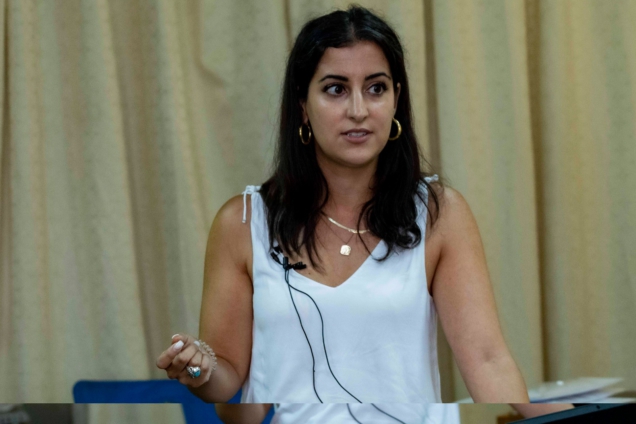An Assistant Professor from the University of Toronto says farmers in Ghana should have a voice in the policy-making process for sustainable food systems.
Farmers have an important role in society by supplying food and resources that are necessary for survival. Given their importance, Dr. Siera Vercillo believes that farmers must be adequately represented in the policy-making process because they hold invaluable knowledge and experience concerning agricultural and rural challenges.
Their knowledge and perspectives, she believes, are critical for developing effective agricultural policies that address real-world difficulties faced by individuals working in the field.

Farmers, according to experts, are at the forefront of sustainable agriculture practices, and incorporating them in policy debates guarantees that environmental concerns, conservation efforts, and sustainable farming methods are taken into account when creating agricultural regulations.
Dr. Vercillo delivered a speech at a workshop on the complexities of nutrition in Tamale at the Northern Regional Agriculture Department conference room.
The workshop titled, “Connecting and building the capacity of rural to urban food sovereignty organizations in Ghana,” is a collaboration between the University of Toronto and Waterloo in partnership with the University for Development Studies (UDS).
Four major food sovereignty organizations with various engagements in Ghana's food system, such as activism, archiving, outreach, and academic, will participate in movement-building activities facilitated by other academics and practitioners during the week-long workshop event to coordinate efforts and develop collaboration post-workshop.
The workshop's outputs will be utilized to establish graduate coursework in food studies, as well as the Sustainable Farming and Food Future Research Cluster at the University of Toronto.
Farmers face numerous challenges, including the consequences of climate change, market shifts, and technological advancements. They can use representation to express their desires and concerns to lawmakers, resulting in more specialized and responsive policy.

Dr. Vercillo also discussed the gradual disappearance of indigenous foods in the region, which were designed to be nutritious to the people and their traditions. She was concerned after years of gathering data and talking with people in the area that many people felt eating traditional foods like TZ, dawadawa, and so on made them impoverished men.
The promotion of underutilized and disappearing culinary ingredients became an important topic in the MoFA's conference hall, as the Toronto-based Associate Professor highlighted certain well-known dishes that are becoming increasingly difficult to find on the table.
She also emphasized storage, transportation, irrigation, water, and sanitation facilities, among other things.
The workshop's 31 participants, who included farmers, agric officers, researchers, and activist groups, among others, dug into issues of relevance to food production.

For example, Felix Oteng Dwaah, regional agriculture officer for monitoring and evaluation, stated that there is the need to communicate and enlighten the public about the advantages of consuming locally produced and cooked food.
“These foods are highly nutritious and healthy. Consumption of these foods will contribute immensely to food sovereignty in the Northern region in particular and the country as a whole,” he said.
Latest Stories
-
Paris 2024: Opening ceremony showcases grandiose celebration of French culture and diversity
3 hours -
How decline of Indian vultures led to 500,000 human deaths
3 hours -
Paris 2024: Ghana rocks ‘fabulous fugu’ at olympics opening ceremony
4 hours -
Trust Hospital faces financial strain with rising debt levels – Auditor-General’s report
4 hours -
Electrochem lease: Allocate portions of land to Songor people – Resident demand
4 hours -
82 widows receive financial aid from Chayil Foundation
5 hours -
The silent struggles: Female journalists grapple with Ghana’s high cost of living
5 hours -
BoG yet to make any payment to Service Ghana Auto Group
5 hours -
‘Crushed Young’: The Multimedia Group, JL Properties surprise accident victim’s family with fully-furnished apartment
5 hours -
Asante Kotoko needs structure that would outlive any administration – Opoku Nti
6 hours -
JoyNews exposé on Customs officials demanding bribes airs on July 29
6 hours -
JoyNews Impact Maker Awardee ships first consignment of honey from Kwahu Afram Plains
7 hours -
Joint committee under fire over report on salt mining lease granted Electrochem
7 hours -
Life Lounge with Edem Knight-Tay: Don’t be beaten the third time
8 hours -
Pro-NPP group launched to help ‘Break the 8’
8 hours

